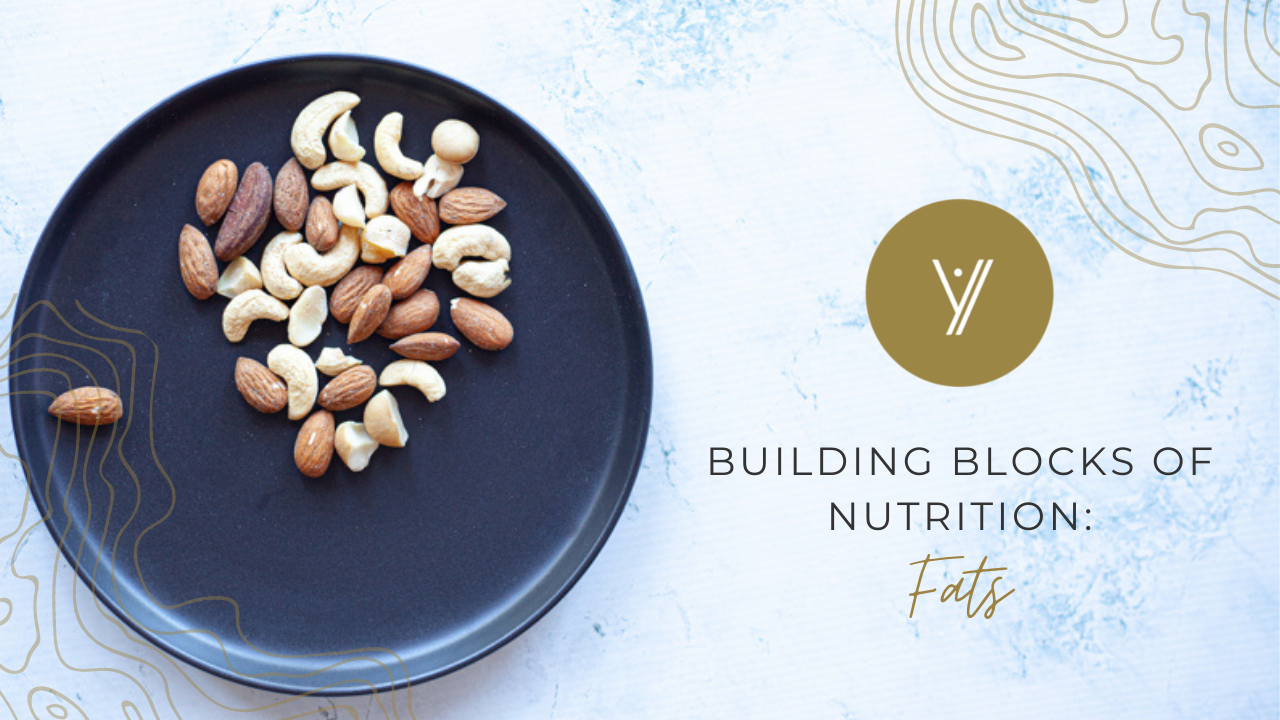Building Blocks of Nutrition: Fats
Jun 22, 2021
The truth about Fats, that could change your life
Fat seems to be the Buzz word these days, is it Good or Bad? What fats to eat, what fats to stay away from. Knowledge is power. Understanding Saturated, Unsaturated and Trans fats allows you to make better food choices and stay healthy. The truth is there are good fats and there are bad fats. We need good fats as they are necessary for good health and wellbeing. Let’s look at the truth about fats.
Good Fats
- Make hormones
- Protect your organs and reduce inflammation.
- Make us feel full, as they take longer to digest.
- Suppresses the appetite and signals us to stop eating.
- Supply fatty acids that are essential for numerous chemical processes.
- Help the formation and function of membranes.
- Transport molecules into and out of cells.
- Are essential for brain function
- Fats transport and absorb the fat-soluble vitamins A, D, E and K, A
Then there are Bad fats (Trans fats) which you don’t want to be eating, EVER.
Here is a breakdown of the different fats and where you can find them.
Saturated Fats are solid at room temperature.
These come from:
- Animal sources
- Milk,
- Cheese,
- Meat. – Try buy unprocessed, organic meat
- Tropical oils
- Virgin organic coconut oil
- cocoa butter
Saturated fats should be eaten in moderation. However coconut saturated fat is different to saturated animal fat. Coconuts have amazing properties and you will always find it in my kitchen. Chicken and fish are a staple in our home and we will have mead meat once or twice a week.
Unsaturated fats are liquid at room temperature. It is mostly in oils from plants. There are two types of “good” unsaturated fats: Monounsaturated fat and polyunsaturated fat.
Monounsaturated fat:
- Improves blood cholesterol levels, which decrease heart disease
- They regulate insulin levels
- Control blood sugar
High concentrations of Monounsaturated fats are found in:
- Avocados
- Nuts such as almonds, hazelnuts, and pecans
- Seeds such as pumpkin and sesame seeds
- Olive, peanut, and canola oils
Polyunsaturated fat:
- Help reduce bad cholesterol levels in your blood which can lower your risk of heart disease and stroke.
- They also provide nutrients to help develop and maintain your body’s cells.
- Oils rich in polyunsaturated fats also contribute vitamin E to the diet.
High concentrations of Polyunsaturated fats are found in:
- Sunflower, corn, soybean, and flaxseed oils
- Walnuts
- Flax seeds
- Fish
The two types of polyunsaturated fats are omega-3 and omega-6 fatty acids.
Omega-3 fatty acids.
- Helps maintain a healthy brain, spinal cord and eyes
- Regulates blood pressure and clotting.
The body can’t make these, so they must come from food.
Omega-3 fatty acids come in three forms:
- Eicosapentaenoic acid (EPA) — found mainly in fish
- Docosahexaenoic acid (DHA) — also found mainly in fish
- Alpha-linolenic acid (ALA) — from plant sources like flaxseed, vegetable oils, and nuts
An excellent way to get omega-3 fats is by eating fish 2-3 times a week. Good plant sources of omega-3 fats include flax seeds, walnuts. If you are a vegan or a vegetarian you need to make sure you are getting EPA and DHA into your diet, as you can’t get all your Omega 3s from ALA.
Omega-6 fatty acids
- Control your blood sugar
- Reduce your risk of diabetes
- Lower your blood pressure
Omega-6 fatty acids are found mostly in omega-6 fatty acids include vegetable oils such as safflower, soybean, sunflower, walnut, and corn oils.
Trans fats (These are bad fats)
Trans fats are created when a vegetable oil undergoes Hydrogenation, a process that lengthens food’s shelf life.
According to medicinenet “Trance fats are also known as trans fatty. It is a unhealthy substance, acid, made through the chemical process of hydrogenation of oils. Hydrogenation solidifies liquid oils and increases the shelf life and the flavour stability of oils and foods that contain them”. Most trans fats are made during food processing, therefore most packaged foods are processed.
Trans fats are found in
- Most processed foods
- Vegetable shortenings
- Some margarines
- Donuts
- Slap chips
- Snacks
- Biscuits
So What fats do you eat?
To keep healthy, get most of your fats from unsaturated sources. And, get the bulk of your nutrition from healthy foods like vegetables, fruits, whole grains, and lean protein such as fish and skinless poultry.
Simple swaps to replace unhealthy fats with healthy fats.
- Eat walnuts instead of cookies for a snack. Keep your portion small, as nuts are high in calories.
- Replace some meats with fish. Try eating at least 2 meals with fish per week.
- Sprinkle ground flax seed on your meal.
- Add walnuts or sunflower seeds to salads.
- Instead of frying, bake, roast, broil, or stir fry meat
